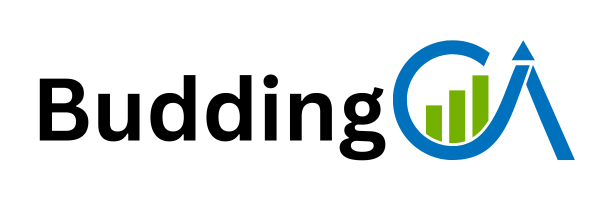In today’s competitive job market, especially in specialised fields such as statutory audit, a well-crafted resume is your gateway to securing your ideal role. Employers today are increasingly relying on applicant tracking systems (ATS) and keyword searches to sort through numerous applications. This means that tailoring your resume with the right keywords is not just an optional extra – it is essential. In this article, we will explore what statutory audit entails, why customising your resume matters, and how to incorporate essential keywords that can help your resume stand out in the Indian financial and audit landscape.
What is a Statutory Audit?
A statutory audit is an independent examination of a company’s financial records, statements, and internal controls. Its primary aim is to verify whether the financial statements are prepared and presented in accordance with the applicable laws, accounting standards, and regulatory guidelines. This independent review adds credibility to the organisation’s financial reports and ensures public trust, which is particularly important in sectors where financial integrity is closely monitored.
Why is Statutory Audit Important?
- Ensuring Compliance: Statutory audits help organisations adhere to various statutory regulations and accounting standards such as the Companies Act in India, Indian Accounting Standards (Ind AS), and, where applicable, International Financial Reporting Standards (IFRS).
- Building Trust: An audited set of financial statements builds trust among investors, stakeholders, and regulatory bodies.
- Risk Management: Audits identify potential discrepancies and inefficiencies that could lead to financial misreporting or fraud.
- Enhancing Operational Efficiency: Through internal control evaluations and risk assessments, statutory audits help in highlighting areas where operational and financial efficiency can be improved.
The Importance of Customising Your Resume
Customisation Versus Generic Resumes
In many cases, candidates are tempted to send out generic resumes to multiple companies. However, in the realm of statutory audit, where the role demands a specialised skill set, generic resumes usually fail to make a significant impact. Customising your resume means tailoring it to reflect exactly what the employer has listed in the job description. It demonstrates that you have taken the time to understand the company’s needs and are genuinely interested in the role.
How Job Descriptions Serve as Blueprints
Job descriptions are not just lists of duties; they are carefully constructed maps that highlight:
- Required Skillsets: Such as proficiency in audit procedures, compliance standards, and risk assessment.
- Experience Expectations: The number of years, specific industries, and types of audits undertaken.
- Educational Qualifications and Certifications: Recognised qualifications like CA, CMA, or ACCA.
- Technical Proficiencies: Familiarity with audit software, financial reporting tools, and data analysis platforms.
By deconstructing job descriptions, you can identify the key phrases and keywords that should be reflected in your resume. For instance, if a job description emphasises “internal controls” and “financial statement analysis,” these phrases must be present in your skills and achievements sections.
Essential Keywords and Phrases for Statutory Audit Roles
Incorporating the right keywords is akin to speaking the language that recruiters and ATS algorithms understand. Below is an extensive list of essential keywords, categorised by their relevance in the statutory audit domain.
Keywords Related to Compliance and Regulations
- Compliance Audit: Reflects your expertise in ensuring that the organisation complies with statutory and regulatory requirements.
- Regulatory Compliance: Highlights your ability to work within the legal frameworks set by governmental agencies.
- Statutory Compliance: Directly ties to ensuring that financial records meet statutory standards.
- Compliance Reporting: Signifies competence in preparing and submitting compliance reports on time.
- Governance, Risk and Compliance (GRC): Demonstrates a holistic understanding of organisational governance and risk management.
Keywords Related to Audit Processes and Procedures
- Audit Procedures: Indicates your familiarity with various auditing steps and procedures.
- Audit Trail: Refers to your capability in tracking financial transactions accurately.
- Substantive Procedures: Points towards the in-depth checks you perform on financial transactions.
- Audit Documentation: Reflects on your skills in maintaining detailed records throughout the audit process.
- Audit Sampling: Illustrates expertise in selecting representative samples for in-depth analysis.
- Audit Strategy: Highlights your ability to plan and execute a comprehensive audit plan.
Keywords Related to Risk Management and Internal Controls
- Risk Management: Demonstrates your proficiency in identifying, assessing, and mitigating financial and operational risks.
- Risk Assessment Procedures: Shows your methodological approach to assessing risks.
- Risk Mitigation: Conveys your competence in designing interventions to reduce identified risks.
- Internal Controls: Underlines your expertise in establishing processes that safeguard the organisation’s assets.
- Control Testing: Points towards the evaluation of existing internal controls to ensure their effectiveness.
- Control Environment: Refers to the overall context in which internal controls are established and operated.
Keywords Related to Financial Analysis and Reporting
- Financial Analysis: Indicates a strong background in scrutinising financial statements.
- Financial Reporting: Reflects your capability to prepare reports that comply with statutory requirements.
- GAAP Compliance: In the Indian context, while Indian Accounting Standards are prominent, mentioning GAAP illustrates a familiarity with global standards.
- Audit Opinion: Represents your ability to provide an independent opinion on the financial statements.
Keywords Specific to Areas of Specialisation
Additional Relevant Keywords
- Forensic Accounting: Demonstrates your skills in investigating financial discrepancies and fraud.
- Fraud Examination: Highlights your focus on identifying and mitigating fraudulent activities.
- Tax Audit: Indicates expertise in reviewing tax-related aspects as part of the overall audit process.
- IT Auditing: Reflects knowledge in auditing information systems, a valuable skill in today’s digital era.
- Financial Due Diligence: Points to consider in evaluating financial aspects during mergers and acquisitions.
- Corporate Governance: Emphasises a comprehensive understanding of governance issues within the organisation.
- Management Representation: Shows your experience in liaising with management to understand internal practices.
- Audit Risk Model: Indicates your proficiency in utilising quantitative and qualitative methods to assess audit risk.
- Materiality Assessment: Reflects your ability to determine what is significant in financial reporting.
- Audit Scope: Signifies your experience in defining the boundaries of an audit engagement.
- Quality Assurance: Highlights a commitment to maintaining high standards during the audit process.
- Operational Audit: Indicates capability in assessing the efficiency and effectiveness of operational systems.
- Business Process Review: Demonstrates a deep understanding of how various business processes impact financial performance.
Strategies for Integrating Keywords in Your Resume
Integrating these keywords effectively requires a combination of strategy and subtlety. Simply stuffing your resume with technical terms will not make a favourable impression. Instead, integrate these keywords in a natural, coherent manner throughout your resume. Here are some strategies to help you:
Start with a Powerful Summary
Begin your resume with a summary statement that captures your career objectives and core competencies. Use terms such as “statutory audit,” “internal controls,” “risk management,” and “financial reporting” in this section. An effective summary is concise and immediately informs the reader of your specialised skills and experiences.
Example Summary:
“Chartered Accountant with over eight years of experience in statutory audit, proficient in risk management, financial analysis, and audit strategy. Demonstrated expertise in implementing robust internal controls, conducting comprehensive audit procedures, and ensuring regulatory compliance across diverse sectors.”
Tailor Your Professional Experience Section
For every role you list, ensure that you highlight responsibilities and achievements using the relevant keywords. Explain how you contributed to enhanced compliance standards, improved internal control frameworks, or identified critical areas for risk mitigation.
Example Bullet Points:
- Led statutory audit engagements for a portfolio of over 20 clients, ensuring adherence to regulatory compliance and accounting standards.
- Implemented robust internal controls and executed audit procedures that reduced financial discrepancies by 15%.
- Utilised risk assessment procedures and control testing methodologies to identify and mitigate operational risks.
- Documented comprehensive audit trails and maintained meticulous audit documentation to streamline subsequent reviews.
Showcase Your Achievements
Quantify your achievements wherever possible. Employers value tangible results and measurable impacts. Use numbers and percentages to demonstrate the benefits of your contributions.
Example Achievement:
“Implemented a new audit sampling procedure that improved the detection of irregularities by 20%, thereby enhancing overall audit efficiency.”
Incorporate Keywords in the Skills Section
Create a dedicated skills section in your resume where you list key proficiencies related to statutory audit. This not only provides a quick snapshot of your expertise but also ensures that ATS systems flag your resume for relevant roles.
Example Skills Section:
- Compliance Audit and Regulatory Compliance
- Risk Management and Risk Assessment Procedures
- Audit Procedures, Audit Documentation, and Audit Trail
- Financial Analysis and Financial Reporting
- Internal Controls and Control Testing
- Forensic Accounting and Fraud Examination
- Proficiency with Audit Software and reporting tools
Use a Combination of Hard and Soft Skills
In addition to technical keywords, intersperse your resume with soft skills such as “analytical thinking,” “attention to detail,” and “effective communication.” These attributes reinforce the technical skills and help build a well-rounded profile.
Example Soft Skills Section:
- Strong analytical and problem-solving skills
- Excellent communication and presentation abilities
- High attention to detail and organisational aptitude
- Ability to work collaboratively in team environments
Customise Your Cover Letter
Your cover letter is an excellent place to further highlight key phrases and demonstrate your enthusiasm for the role. Tailor your cover letter in a way that mirrors the language used in the job description. This ensures consistency across your application materials and reinforces your suitability for the role.
Tips for Writing a Compelling Resume in Statutory Audit
A resume for statutory audit roles should not only demonstrate your technical expertise but also reflect your professionalism and readiness to work in a regulated environment. Here are some additional tips to help you craft an impressive resume:
Keep It Clear and Concise
- Use Subheadings and Bullet Points: Break up long sections of text with subheadings, bullet points, and lists. This improves readability and makes it easier for recruiters to quickly identify key information.
- Short Paragraphs: Avoid lengthy paragraphs. Each section should be digestible and focused on a particular theme or competency.
- White Space: Ensure ample white space to prevent your resume from looking cluttered.
Focus on Relevance
- Customise for Each Application: Rather than using a one-size-fits-all approach, tailor your resume for each role. Adjust the keywords and examples based on the specific job description.
- Highlight Relevant Experience: Prioritise roles and experiences that are most closely aligned with statutory audit practices.
Maintain a Professional Appearance
- Consistent Formatting: Choose a clean, professional layout with consistent font sizes, styles, and spacing.
- Proofread: Ensure that there are no grammatical errors or typos. A well-polished resume reflects your attention to detail.
Include Certifications and Education
- Certifications: Clearly list your certifications like Chartered Accountant (CA), Cost Accountant (CMA), or ACCA. If you have attended specialised audit training programmes, mention those as well.
- Educational Background: List your academic qualifications in reverse chronological order. Focus on courses or subjects that are directly relevant to financial analysis, accounting, and audit standards.
Demonstrate Continuous Learning
The statutory audit field is evolving, with emerging trends in technology and regulatory changes. Indicating your commitment to continuous professional development is essential. This can be done by listing:
- Recent courses or workshops on IT Auditing or Forensic Accounting
- Memberships in professional bodies such as the Institute of Chartered Accountants of India (ICAI) or the Institute of Cost Accountants of India (ICAI – Cost)
Examples of Resume Sections in Statutory Audit
Below are examples of how you might structure various sections of your resume to incorporate the relevant keywords naturally.
Professional Summary
“Experienced Chartered Accountant with over 10 years of experience in statutory audit and regulatory compliance. Demonstrated proficiency in audit procedures, risk management, internal controls, and financial reporting. Proven track record in improving audit efficiency through innovative audit sampling techniques and detailed audit documentation. Committed to upholding the highest standards of professional ethics and integrity.”
Professional Experience
Senior Auditor, XYZ Auditing Firm, Mumbai (2017 – Present)
- Led multiple statutory audit engagements for diversified clients, ensuring adherence to regulatory compliance and statutory reporting standards.
- Designed and implemented a comprehensive risk assessment procedure that reduced non-compliance issues by 18%.
- Conducted in-depth internal control evaluations and formulated recommendations to strengthen control environments.
- Developed detailed audit documentation and maintained an accurate audit trail which significantly enhanced follow-up reviews.
Audit Associate, ABC Financial Services, Bengaluru (2013 – 2017)
- Assisted in statutory audits, focusing on financial analysis and audit sampling techniques to ensure reliable audits.
- Supported the implementation of audit procedures and control testing programmes to identify discrepancies in financial records.
- Collaborated with the IT auditing team to assess the reliability of digital records and data security measures.
Skills
- Compliance Audit & Regulatory Compliance
- Internal Controls & Control Testing
- Risk Management & Risk Assessment Procedures
- Audit Procedures & Audit Documentation
- Financial Analysis & Financial Reporting
- Forensic Accounting & Fraud Examination
- Proficiency in Audit Software and data analytics tools
Certifications and Education
- Chartered Accountant (CA) – Institute of Chartered Accountants of India (ICAI)
- Advanced Certificate in Forensic Accounting – [Name of the Institution]
- Master of Commerce (M.Com) – [University Name, India]
Overcoming Common Resume Mistakes
Even if you have all the right keywords, certain pitfalls can diminish the overall effectiveness of your resume. Let’s look at some common errors and how to avoid them:
Common Mistake 1: Keyword Stuffing
While it is important to include relevant keywords, overloading your resume with technical jargon can make it difficult to read. The objective is to integrate keywords naturally within the context of your achievements and responsibilities. Aim for balance by using bullet points, concise language, and varied sentence structures.
Common Mistake 2: Neglecting Soft Skills
Technical proficiency is crucial, but auditors must also demonstrate critical soft skills such as analytical thinking, communication, and teamwork. Ensure that your resume also highlights these strengths through relevant examples or experiences.
Common Mistake 3: Failing to Tailor the Resume
A generic resume does not cater to the unique requirements of each job posting. Read the job description carefully and tweak your resume for every application to mirror the language and priorities specified by the potential employer. Tailor your professional summary, skills, and work experience sections accordingly.
Common Mistake 4: Overlooking Professional Development
The audit industry constantly evolves due to new technologies and regulatory changes. A resume that does not reflect your commitment to continuous learning might be viewed as outdated. Regularly update your resume with new training, courses, or certifications that enhance your expertise in statutory audit.
How to Stay Updated with Emerging Trends in Statutory Audit
Given the dynamic nature of statutory audit regulations and technology, it is important to keep your skills and knowledge current. Here are some strategies:
- Join Professional Associations: Becoming a member of organisations such as the Institute of Chartered Accountants of India (ICAI) or the Institute of Cost Accountants of India can provide you with access to industry updates, training sessions, and networking opportunities.
- Attend Workshops and Seminars: Engage in industry seminars and audit-specific workshops that address the latest trends, such as IT auditing, forensic accounting, or enhanced data analytics for audit processes.
- Read Industry Publications: Regularly review reputable journals, magazines, and online portals that focus on audit practices and regulatory updates.
- Participate in Online Courses: Platforms like Coursera, edX, and specialised accounting institutes offer courses that can bolster your understanding of contemporary audit techniques and regulatory standards.
Staying current not only improves your marketability but also keeps your resume fresh with the latest keyword trends and audit practices.
Embracing the Digital Transformation in Auditing
The digital revolution has had a profound impact on almost every industry, and auditing is no exception. With the increased reliance on technology in the audit process, certain keywords have now become imperative:
- IT Auditing: Knowledge of digital audit tools and software systems is increasingly sought-after
- Audit Software: Familiarity with specialised audit software for data analysis and reporting.
- Data Analysis: Ability to work with large datasets and extract meaningful insights that support financial integrity.
- Digital Transformation: Indicates an openness to adopting modern technologies in audit methodologies.
- Cybersecurity: As organisations digitise, auditors with knowledge of cybersecurity frameworks are in demand.
Integrating these digital-related keywords can set your resume apart, particularly as organisations in India modernise their financial and audit practices.
Creating a Lasting Impression with Your Resume
Remember, your resume is more than a list of your experiences – it is a reflection of your professional identity. Here’s how to leave a lasting impression:
Personalise Your Resume
- Focus on Your Unique Selling Points: What makes you a top candidate for a statutory audit role? Maybe it is your extensive experience in handling complex audit procedures or your ability to innovate when it comes to risk management.
- Be Honest and Transparent: Always verify that the keywords and achievements you present are a true reflection of your capabilities. Honesty and integrity are crucial in the world of auditing.
- Review and Revise: The job market evolves quickly. Regularly update your resume to include recent experiences, new certifications, and any additional responsibilities you have undertaken.
Proof of Competence
Employers appreciate evidence. Whenever possible, back up your skills with quantifiable results and examples. Here are some simple ways to do so:
- Use numbers: “Reduced reporting errors by 15% through enhanced internal controls.”
- State improvements: “Streamlined audit documentation process, resulting in a 20% reduction in audit cycle time.”
- Mention special projects: “Led a cross-departmental project on IT auditing, integrating new digital tools that improved data accuracy.”
These detailed examples provide clear proof of your expertise, making your resume more compelling.
Final Thoughts
In summary, the journey towards an effective resume for statutory audit roles involves more than just listing qualifications. It requires a deep understanding of what statutory audit entails, a thorough analysis of job descriptions, and the strategic use of keywords that align with the expectations of recruiters and automated screening tools. By carefully integrating keywords such as “compliance audit,” “risk management,” “internal controls,” “financial analysis,” and many more into your professional summary, experience, and skills sections, you enhance the visibility and relevance of your resume.
Calling all CA dreamers!
🔴 Are you tired of searching for the perfect articelship or job?
Well, fear no more! With 10K+ students and professionals already on board, you don't want to be left behind. Be a part of the biggest community around! Join the most reliable and fastest-growing community out there! ❤️
And guess what? It’s FREE 🤑
✅ Join our WhatsApp Group (Click Here) and Telegram Channel (Click Here) today for instant updates.




